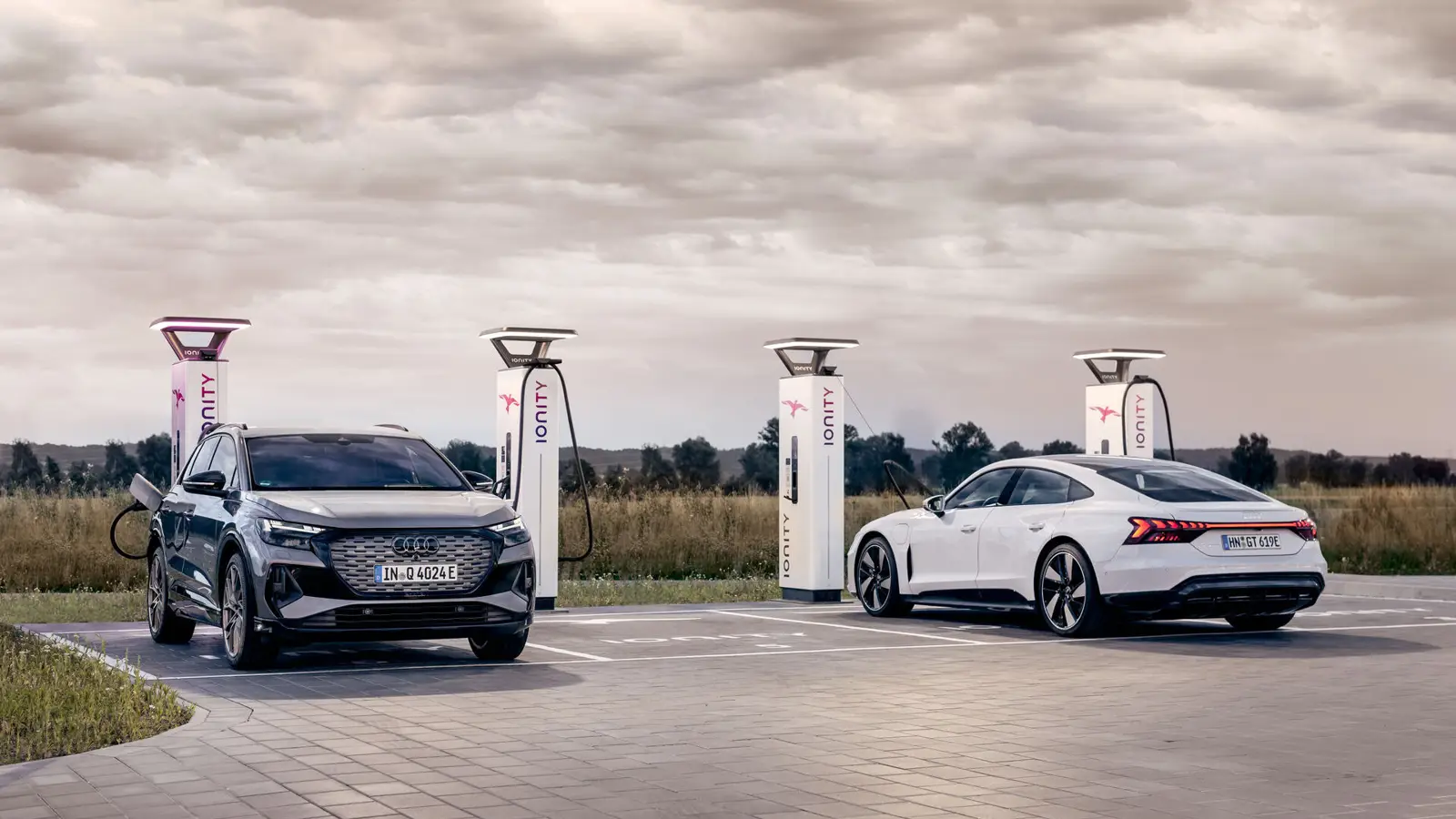Audi expands EV charging: Europe-wide hubs and smart home systems

Audi enhances EV charging with high-speed hubs, Elli home solutions, and 800V tech. Covering 27 countries, including UK and Eastern Europe.
Audi continues to strengthen its presence in the electric vehicle market, focusing not only on high-performance models but also on the charging infrastructure that underpins sustainable mobility. At the center of this strategy is the Audi Q6 SUV e-tron quattro — an electric flagship equipped with 800-volt architecture, capable of gaining up to 255 kilometers of range in just 10 minutes at 270 kW charging power.
To complement such rapid charging capability, Audi is building its own premium fast-charging network: the Audi Charging Hubs. The pilot location in Nuremberg, launched in 2021, has since been followed by additional hubs in Munich, Berlin, Zurich, Salzburg, and Tokyo. Each station features second-life battery buffers that store off-peak energy, reducing strain on the grid and increasing efficiency. For example, the Nuremberg hub hosts a 2.45 MWh buffer storage unit powered by both the grid and solar panels.
Drivers can choose from three subscription plans: Basic (no monthly fee), Plus, and Pro. The Pro plan unlocks discounted rates and exclusive access to the Selected Partner Network, which includes major players like Ionity, Aral pulse, and Zunder. In the UK, over 17,500 public charging points are accessible through the Audi Charging service, now available in 27 European countries.
Ionity supports charging up to 350 kW, while Zunder has launched a park in Spain with twelve 400 kW-capable chargers. In this context, the Q6 e-tron’s 270 kW capacity is more than competitive. Additionally, the Plug & Charge feature — simplifying user authentication — is supported on almost all e-tron models built after late 2021.
For home charging, Audi relies on solutions from its subsidiary Elli. Their wallboxes, such as the Elli Charger Pro, are compatible with photovoltaic systems and dynamic load management. Through a partnership with Norwegian firm Otovo, Audi enables homeowners to integrate solar charging and reduce EV electricity costs by up to 40%.
User reception has been largely positive. In Nuremberg, over 60% of customers became regular users of the Audi Charging Hub. They particularly value the clean facilities, lounge areas, and on-site assistance. Although Audi hasn’t disclosed the exact share of green energy used in the charging process, it’s confirmed that all production sites run on renewable electricity. The company aims to add 5 TWh of green power to the grid by the end of 2025 through wind and solar projects.
Despite this strong European focus, Audi has not announced plans to expand the Charging Hub concept to North America. However, beginning in 2025, Audi EVs sold in the U.S. will adopt the NACS standard, granting them access to Tesla’s Supercharger network — a strategic step toward broader compatibility.
Mark Havelin
2025, Jun 08 06:56


